Mosquito-borne diseases such as malaria, dengue, Chikungunya, Japanese encephalitis (JE), lymphatic filariasis, and Zika have a significant impact on public health. The development of strategies to control mosquito vectors requires a thorough understanding of their biology, ecology, behaviour, and vector bionomics. TIGS has developed a state-of-the art Insect Bio-safety Level 2 (IBSL-2) containment facility to support contemporary research on insecticides, repellents, attractants, vector development and physiology, disease transmission, host-parasite/pathogen interactions, life histories studies, population dynamics, behavioural genetics, ecological interactions, and related subjects.
The Insectary is managed by a team of skilled vector biologists. The team provides different services for mosquito-related work, facilitating online interaction of rapid resolution of insectary related queries, requirements and services. Periodic orientation programs as well as trainings and hands-on workshops are planned to allow an expanding network of users to access the Insectary.
Mosquito colony maintenance and regular operations
Ten populations of Anopheles stephensi and two Aedes aegypti are being maintained in the facility. Aedes albopictus, and a new population of Anopheles stephensi from Bangalore were established in Mar-April 2022.
Plasmodium falciparum in vitro culture
We successfully completed P. falciparum vectorial capacity of 10 populations along with 2 isofemale lines with two duplicates. Immunofluorescence assay protocols of Plasmodium falciparum ookinete stages were standardized using different antibodies.
Biological Material Request and Experimental request
As a resource center, mosquito eggs were transfer to various institutes upon request, facilitating the establishment of laboratory colonies. We also take in requests to carry out Larval toxicity assays and Topical assay from researchers, institutes and companies.
Training and Capacity Building
The insectary conducts regular training programs for individuals or a core group to receive hands-on experience at two levels – Basic and Advance. Interested people can register for these training programs based on the availability of resources and the institute’s priorities.
For more details contact: insectary@tigs.res.in
Facility Managers: Sunita Swain, Chaitali Ghosh
Upcoming Event
2nd Insectary workshop – Beyond the Bite: Exploring the Essentials of Mosquito Biology and Rearing
5-7 November 2024
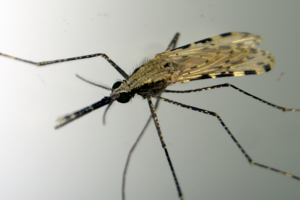
Adult mosquito
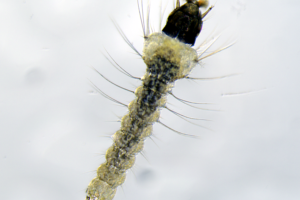
Mosquito larvae
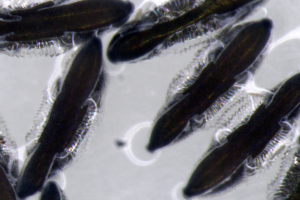
Mosquito egg
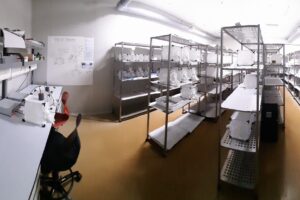
Standard operations in mosquito adult room, including blood-feeding
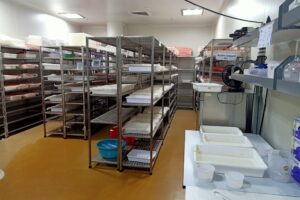
Mosquito larval room to rear larvae (aquatic phase of the life cycle)
